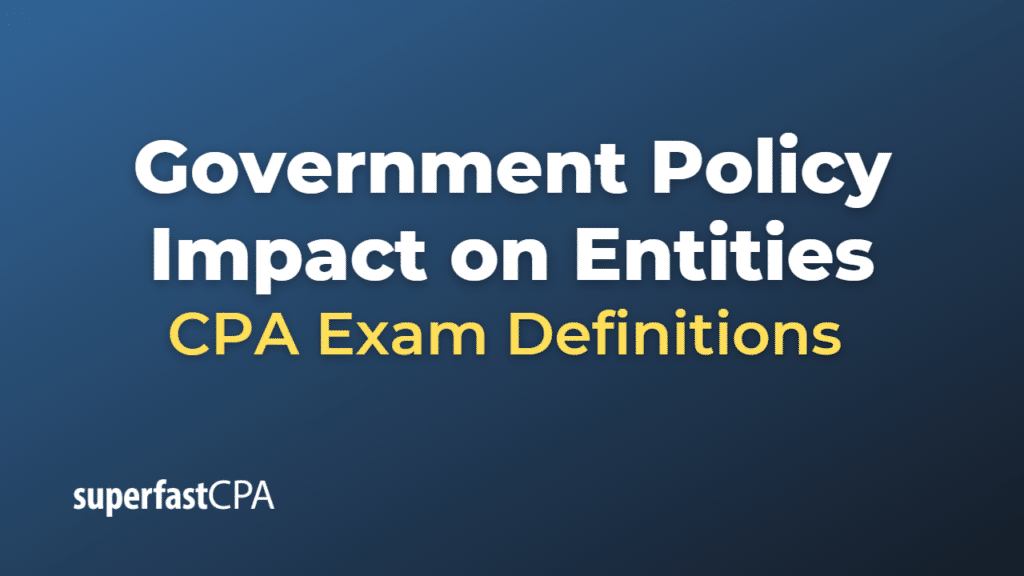Government Policy Impact on Entities
Government factors can impact an entity, its operations, and the inherent risk of material misstatement in its financial statements. Government factors refer to the various ways in which government policies, regulations, and actions can influence an entity’s operating environment and financial reporting.
Some ways in which government factors can impact an entity include:
- Regulatory environment: Government regulations and laws can impose various requirements on entities, such as industry-specific regulations, labor laws, environmental rules, and tax laws. Compliance with these requirements can affect an entity’s financial performance, increase the complexity of its operations, and lead to additional reporting obligations.
- Fiscal and monetary policies: Government fiscal policies (taxation and spending) and monetary policies (interest rates and money supply) can influence an entity’s financial performance, access to capital, and overall economic conditions, which can, in turn, impact the inherent risk of material misstatement in the financial statements.
- Government contracts and grants: Entities that rely on government contracts or grants for a significant portion of their revenue may face uncertainties related to the timing, amount, and continuation of such funding, which can affect their financial performance, operations, and financial reporting.
- Political risks: Changes in political leadership or priorities can lead to shifts in government policies, regulations, or spending, creating uncertainties for entities operating in affected industries or regions. These uncertainties can impact an entity’s operations, financial performance, and the inherent risk of material misstatement in the financial statements.
- Trade policies and tariffs: Government trade policies, such as tariffs, import/export restrictions, or trade agreements, can impact an entity’s supply chain, access to markets, and costs, potentially affecting its financial performance, operations, and the risk of material misstatement in the financial statements.
These government factors can influence the inherent risk of material misstatement in several ways:
- Complexity of transactions: Government factors can increase the complexity of an entity’s transactions, such as tax calculations, compliance with industry-specific regulations, or the accounting for government contracts, potentially increasing the risk of misstatement.
- Estimation uncertainty: Government factors can create uncertainties in the estimation of assets, liabilities, or provisions, leading to a higher risk of material misstatement due to estimation errors or the use of inappropriate assumptions.
- Management bias: Management may have incentives to manipulate financial results, downplay risks related to government factors, or make aggressive accounting estimates to meet targets or portray a positive image, increasing the risk of material misstatement.
- Disclosure requirements: Entities may be required to disclose information related to their exposure to government factors, such as risks, contingencies, or compliance with specific regulations, which can increase the risk of material misstatement due to incomplete or inaccurate disclosures.
Auditors should consider these government factors when assessing the inherent risk of material misstatement during the planning and execution of an audit. Understanding the impact of government factors on an entity’s operations and financial reporting can help auditors design appropriate audit procedures to address these risks and provide reasonable assurance that the financial statements are free from material misstatement.












